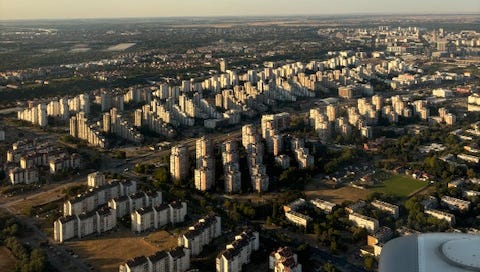The Death of the "New Berlin" Treatment
As UK media has declared the the death of swaths of Belgrade and Berlin's nightlife, I look at the "New Berlin" as an ideological project
Seven years ago, I wrote a short piece for Balkanist poking fun at the idea of Belgrade as “the New Berlin”, and the journalistic pursuit of the new fantasy city of “The New Berlin” in general. For those unfamiliar with this genre of aughts-era trend piece, it involved a culture writer traveling to Eastern Europe in search of a city with a good nightlife, an alternative arts scene, affordable rent, and cheap drinks. The New Berlin would invariably be described as “gritty” and had been liberated some form of political “tyranny” only recently. There was a subtle ideological bent to the “New Berlin” treatment, too: Dancing was democratic. Clubbing would become a kind of ritual – often performed in buildings that the old regime had abandoned – and would serve as a sort of exorcism; techno would help further the cause of liberation. The New Berlin was an “End of History” phenomenon: Clubbing, and the culture that went along with it, was supposed to be a celebration of the new liberal mores, which would replace the conservative cultural rigidity of nationalism, or communism, or fascism, or whatever. The music didn’t have lyrics, so it was innately democratic in that it could be understood by all; it would “break down barriers”, “promote social cohesion”, and so forth. But the idealistic fantasy seems like a relic now. A little over a week ago, the Guardian published a piece titled “Is the party over for Belgrade’s club scene on the Danube?” about the death knell of the Serbian capital’s “splavs”. For those unaware, the “splavovi” are the ramshackle boats that line the Danube River and are home to bars, nightclubs and cafes. Splav culture is part of what put Belgrade on the map as a candidate for the mantle of The New Berlin. During summertime, they are full of people dancing until well after the sun comes up. But in recent months, most of the splavs – considered a scourge and source of excess noise and general anti-social behavior my some –have been towed down river to a “splav graveyard”. The demise of Belgrade’s nightlife has been inevitable for at least eight years, since the Savamala clubbing district was partially bulldozed by the government to make way for a gleaming, Dubai-inspired shopping mall. But I assumed that Belgrade was one thing, and the real Berlin was another. Even with the demise of Belgrade’s nightlife, I thought that Berlin’s clubbing culture would survive; I assumed that it was too integral to the city’s identity to be allowed to die. But a mere 24 hours after the Guardian piece pronounced the death of Belgrade’s splavovi, the Times ran a story with the headline “Berlin’s beats go quiet as techno clubs close their doors”. It’s not just the New Berlin that’s dead; the original one, according to the Times at least, is in its twilight too. So what accounts for this demise?
Keep reading with a 7-day free trial
Subscribe to Lily Lynch to keep reading this post and get 7 days of free access to the full post archives.



